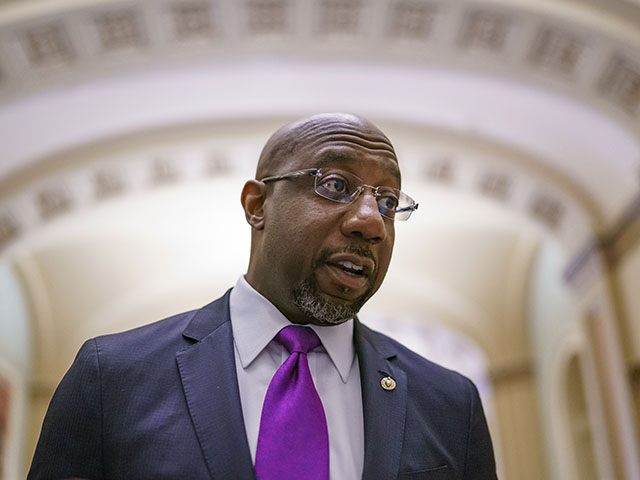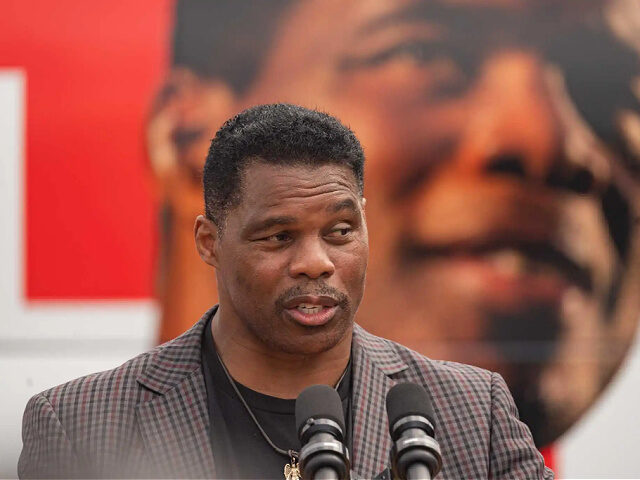The liberal New York Times made the case Sunday that Republican Herschel Walker has been ostracized from the black community in his small hometown amid his bid to unseat Sen. Raphael Warnock (D-GA) in the race for U.S. Senate in Georgia.
Times reporter John Branch, who is based in California, used mostly anonymous sources and anecdotes from visiting Walker’s hometown of Wrightsville to generalize that feelings that Walker, a Georgia football legend, is not in touch with the black community are “flowering ahead of November’s election.”
“Herschel’s not getting the Black vote because Herschel forgot where he came from. … He’s not part of the Black community,” Branch quoted Curtis Dixon, a black former high school teacher and coach of Walker’s, as saying.
Branch added, “Such feelings toward Mr. Walker have been present for decades. They are flowering ahead of November’s elections.”
The contest between Walker and Warnock has brought race into focus given the two candidates are black men facing each other in a neck-and-neck election that could determine which party controls the U.S. Senate next year.
Walker embraced the two candidates’ differing perspectives on the issue in a recent massive statewide ad buy in which he aired across Georgia the message that “Warnock believes America is a bad country full of racist people. I believe we’re a great country full of generous people. … Warnock wants to divide us. I want to bring us together.”
Raphael Warnock and Joe Biden want to divide us and demonize folks who don’t agree with them. I want to bring us together because I’m for the people. #gasen https://t.co/hNW2iKv6Xt pic.twitter.com/8Hsr7WzVl4
— Herschel Walker (@HerschelWalker) September 7, 2022
In polls, the two candidates have been statistically tied. A recent poll from the Atlanta Journal-Constitution found Walker two points ahead of Warnock, 46 percent to 44 percent. The poll also found that, among black voters, Warnock led Walker 77 percent to nine percent, though that figure represented an eight percent dip in support for Warnock from the same poll taken in July.
In the Times report from Sunday, Branch acknowledged more or less that driving Warnock’s support among black voters was the fact that that voting bloc has historically voted overwhelmingly for Democrats and that Warnock has been a longtime leader in the black community by serving as pastor of Ebenezer’s Baptist Church.

In this June 15, 2021 file photo, Sen. Raphael Warnock (D-GA) speaks to a reporter after the Senate Democratic Caucus met to discuss progress on an infrastructure bill and voting rights legislation, at the Capitol in Washington. (AP Photo/J. Scott Applewhite)
“There are easy explanations: Mr. Warnock, who is also Black, is a Democrat who preaches at Martin Luther King Jr.’s former church, and Mr. Walker is running as a Republican tied to Donald J. Trump,” Branch wrote.
Branch then contended that after Walker chose not to partake in civil rights protests in his hometown in 1980 while at the same time signing on to play football at the University of Georgia, the “intersection” of these two events now four decades later “may help decide the balance of power in the U.S. Senate.”
Gary Phillips, Walker’s high school football coach, told the Times of Walker’s decision not to join in the protests, “I don’t want to be divisive … but as an 18-year-old Black kid in Wrightsville with a lot of pressure on him, can you see how or why he might have decided that this is not the best thing for me, to start getting into this?”
Branch concluded that Wrightsville residents are asking, “Why has he not used his fame, fortune and now his political standing to raise the voices of those he left behind? … It is a question raised in 1980, echoing in 2022.”
Write to Ashley Oliver at aoliver@breitbart.com. Follow her on Twitter at @asholiver.

COMMENTS
Please let us know if you're having issues with commenting.